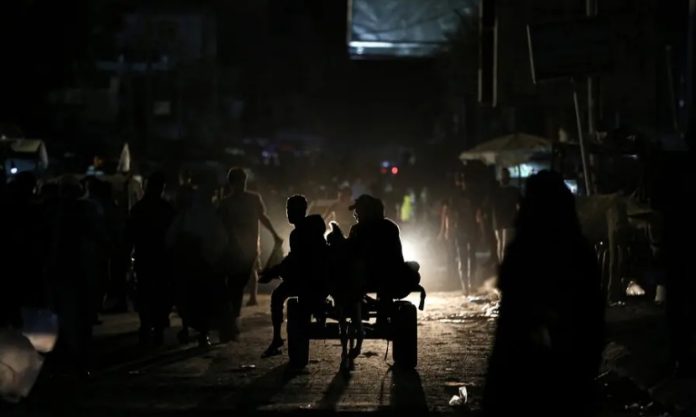Gazans are at risk of starvation, outbreaks after aid deliveries were halted due to fuel shortages, and communications cut-offs, aid agencies warn.
Israel continues to restrict fuel supplies, so aid deliveries to the enclave have been suspended again. On Friday, the UN World Food Programme (WFP) said civilians faced the “immediate possibility of starvation”.
The halting of humanitarian supplies is adding to the suffering of hungry and homeless Palestinians amid Israel’s protracted war. Israel has allowed some supplies into Gaza through the Rafah border crossing between the enclave and Egypt, but it allows little or no fuel through.
Humanitarian organisations say this hinders the distribution of supplies. Palestinian telecoms companies Jawwal and Paltel said Thursday that their networks were out of service after running out of fuel. Communications are intermittently down in the region.
Aid agencies emphasise that the delivery of all aid and medical care depends crucially on fuel supplies.
On Friday afternoon, Israel decided that two truckloads of fuel a day would be allowed into Gaza “for UN needs.” One official said the fuel was for “minimal” support for water, sewage and sanitation systems to prevent epidemics.
The UN said there would be no cross-border relief operations on Friday due to fuel shortages and communications outages. On Thursday, for the second day in a row, humanitarian aid trucks did not arrive in Gaza due to a lack of fuel for distribution.
WFP Executive Director Cindy McCain said almost the entire population is in desperate need of food aid. She claimed:
Supplies of food and water are practically non-existent in Gaza and only a fraction of what is needed is arriving through the borders. With winter fast approaching, unsafe and overcrowded shelters, and the lack of clean water, civilians are facing the immediate possibility of starvation.
The World Health Organisation said it was very concerned about the spread of disease in the Gaza Strip. More than 70,000 reported cases of acute respiratory infections and at least 44,000 cases of diarrhoea have been reported, far more than expected.
The sharp escalation of the military conflict was triggered by an attack on Israel by Hamas militants on 7 October that killed some 1,200 Israelis, mostly civilians, with more than 200 people taken hostage.
Israel’s retaliatory military strike on Gaza killed more than 11,500 Palestinians, at least 4,700 of them children, according to the Gaza health ministry.
Israel has razed entire neighbourhoods of Gaza to the ground through air, artillery attacks, hundreds of thousands of people have been displaced from their homes, and the humanitarian situation is catastrophic, according to representatives of humanitarian organisations.
